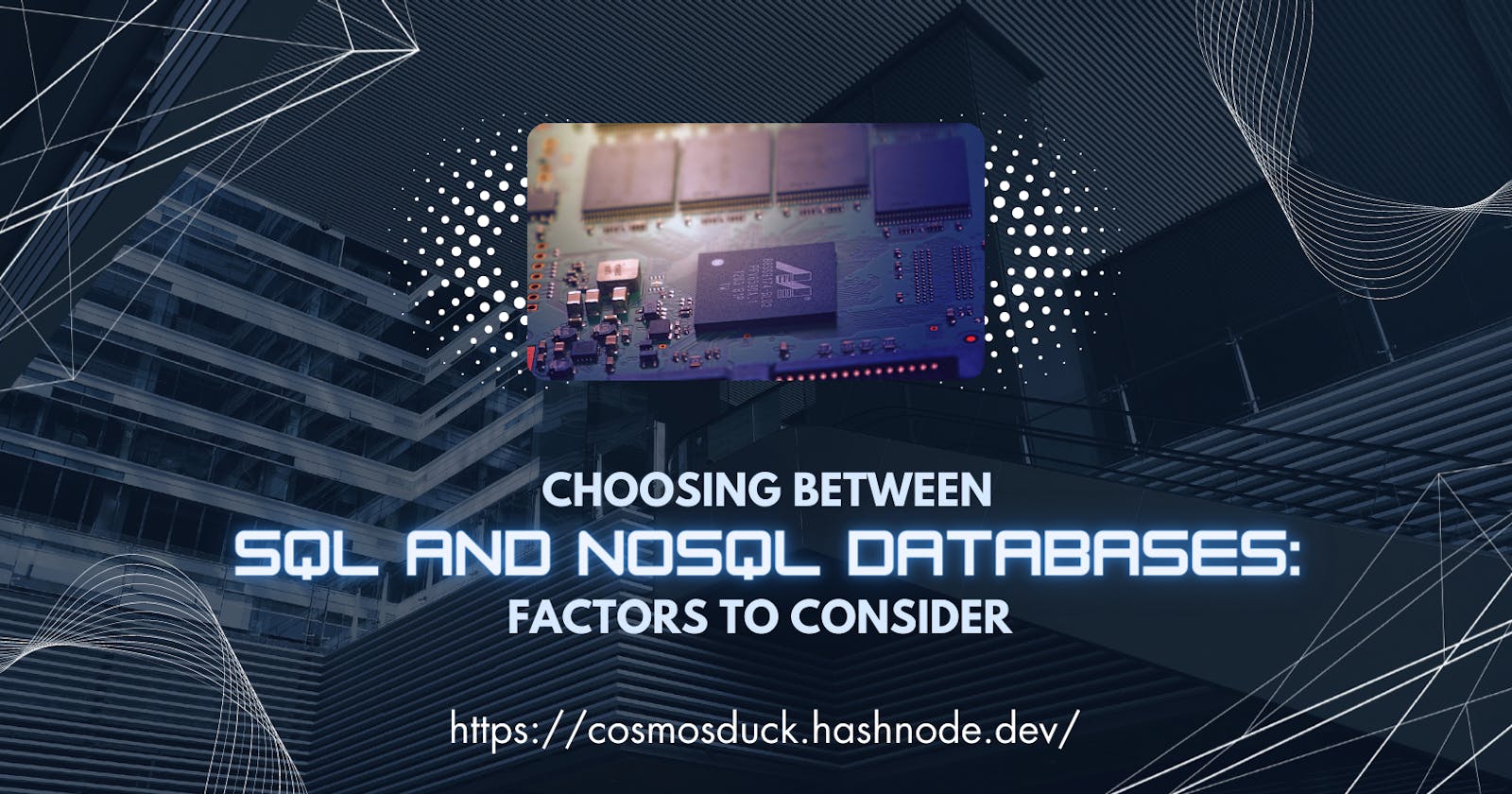Before going into what SQL and NoSQL mean, let's first look at a word we should be a lot familiar with, which is Database. A database is simply an organized collection of structured information, or data, typically stored electronically in a computer system. You may also view it as a format for storing information.
SQL and NoSQL are the two popular ways of storing and structuring your data/information in programming.
What is SQL?
SQL or Structured Query Language is a rigid and highly structured approach for storing databases on a Relational Database Management System(RDBMS). RDBMS itself is a database system that allows us to perform CRUD operations on data stored in a tabular form based on rows and columns. SQL works best for data in which relations exist between different entities.
What is NoSQL
NoSQL on the other hand refers to a nonrelational database system that provides a more flexible approach for storing data other than in rows and columns. It adopts an approach that is in line with the expected data. While SQL makes use of tables ordered in rows and columns, NoSQL uses documents, graph databases and key-value pairs to store data.
A Comparative Analysis of The Two
| SQL | NOSQL |
| SQL deals primarily with Relational Databases or RDBMS | NoSQL deals with none relational database |
| SQL relies more on data that are structured in rows and columns | NoSQL favors a more flexible approach for storing data in documents, key-value pairs, graphs and column databases. |
| SQL databases are vertically scalable, meaning that you can add to the CPU, and RAM of your current server to increase the storage space. | NoSQL on the other hand is horizontally scalable meaning that to increase the amount of storage space, you simply add more servers to your database. This is also known as Sharding. |
| SQL also has a predefined and structured method of querying data. This allows it to execute more complex queries. | NoSQL makes use of JSON, XML, Binary Schemas and the like that facilitate a more dynamic approach for querying data. |
| Examples of SQL database programs include Oracle, MySQL, Microsoft SQL Server, and PostgreSQL | NoSQL database programs would include MongoDB, CouchDB, Redis, DynamoDB, Cassandra, HBase, Neo4j and Amazon Neptune |
When To Use SQL Or NoSQL
The decision of choosing either SQL or NoSQL comes down to the kind of application you are building and the type of data you are expecting. SQL works better when dealing with relational databases as it has a more refined way of structuring data, executing your queries and keeping track in real time of the state of your data whenever any single field changes.
NoSQL works better with larger volumes of data or data that will be in constant need of scalability. It has a more dynamic method for storing constantly changing data and is used by big tech firms such as Facebook, Google, Amazon and Netflix amongst others.
So when next you decide to store information or data, consider which approach you are using.
